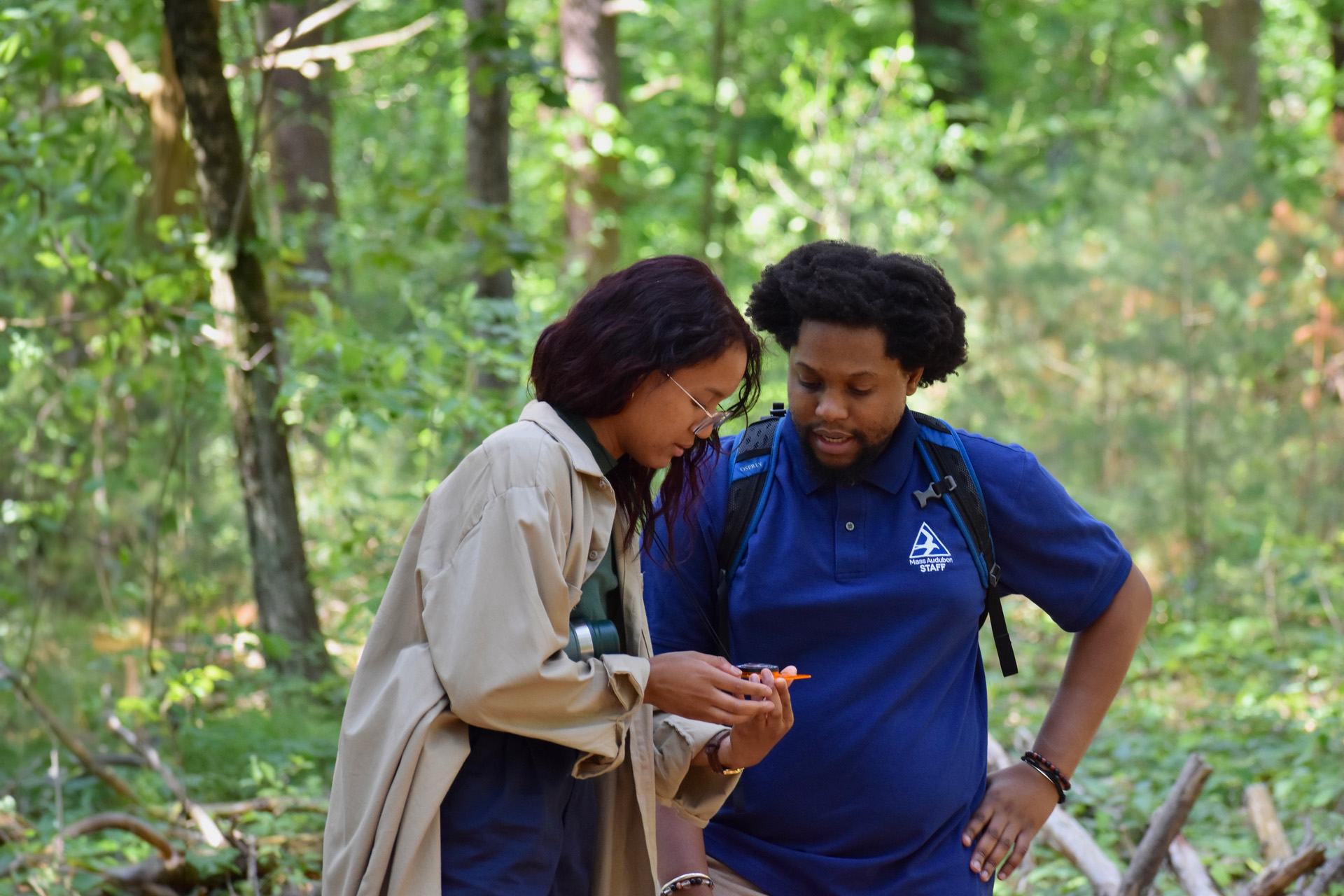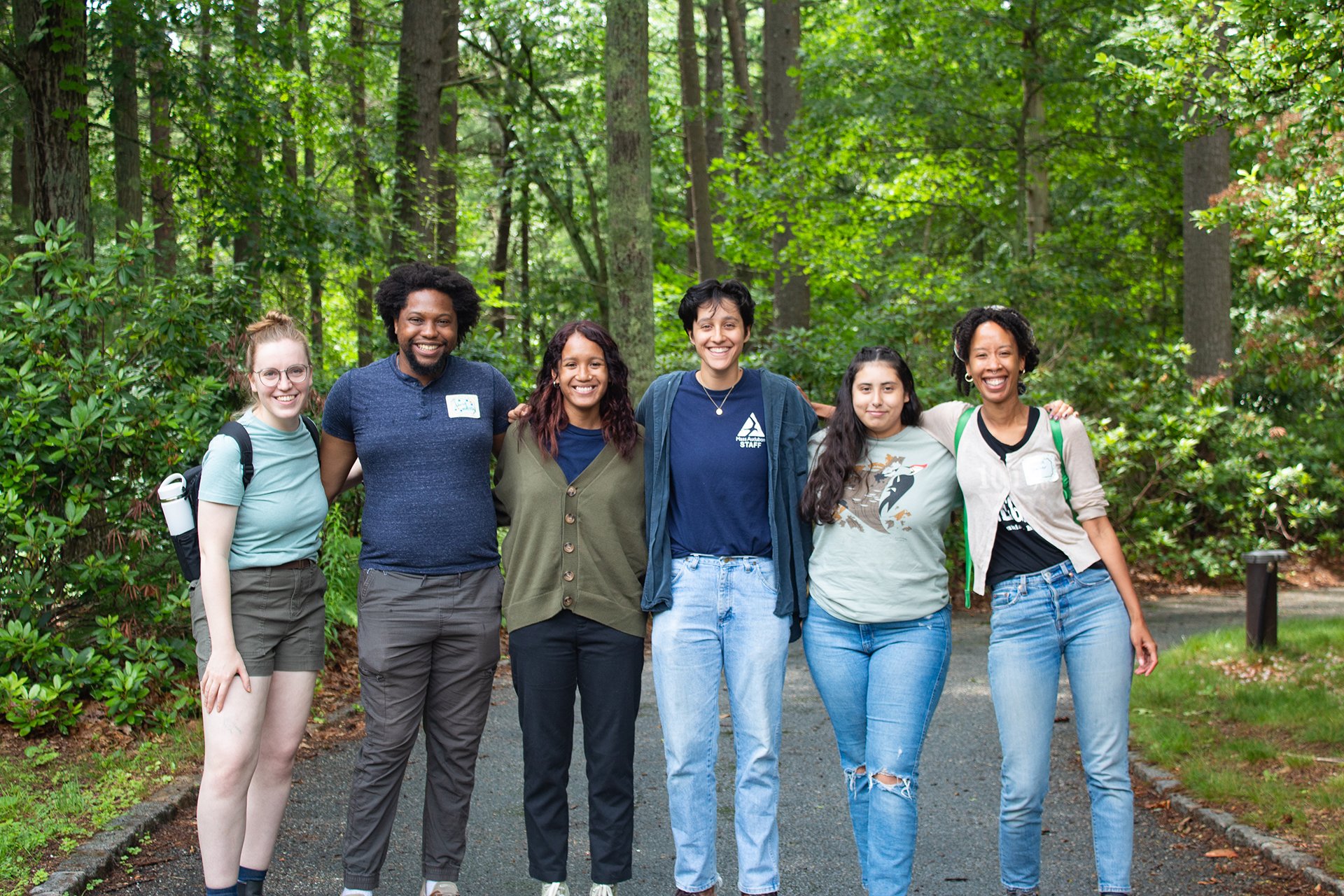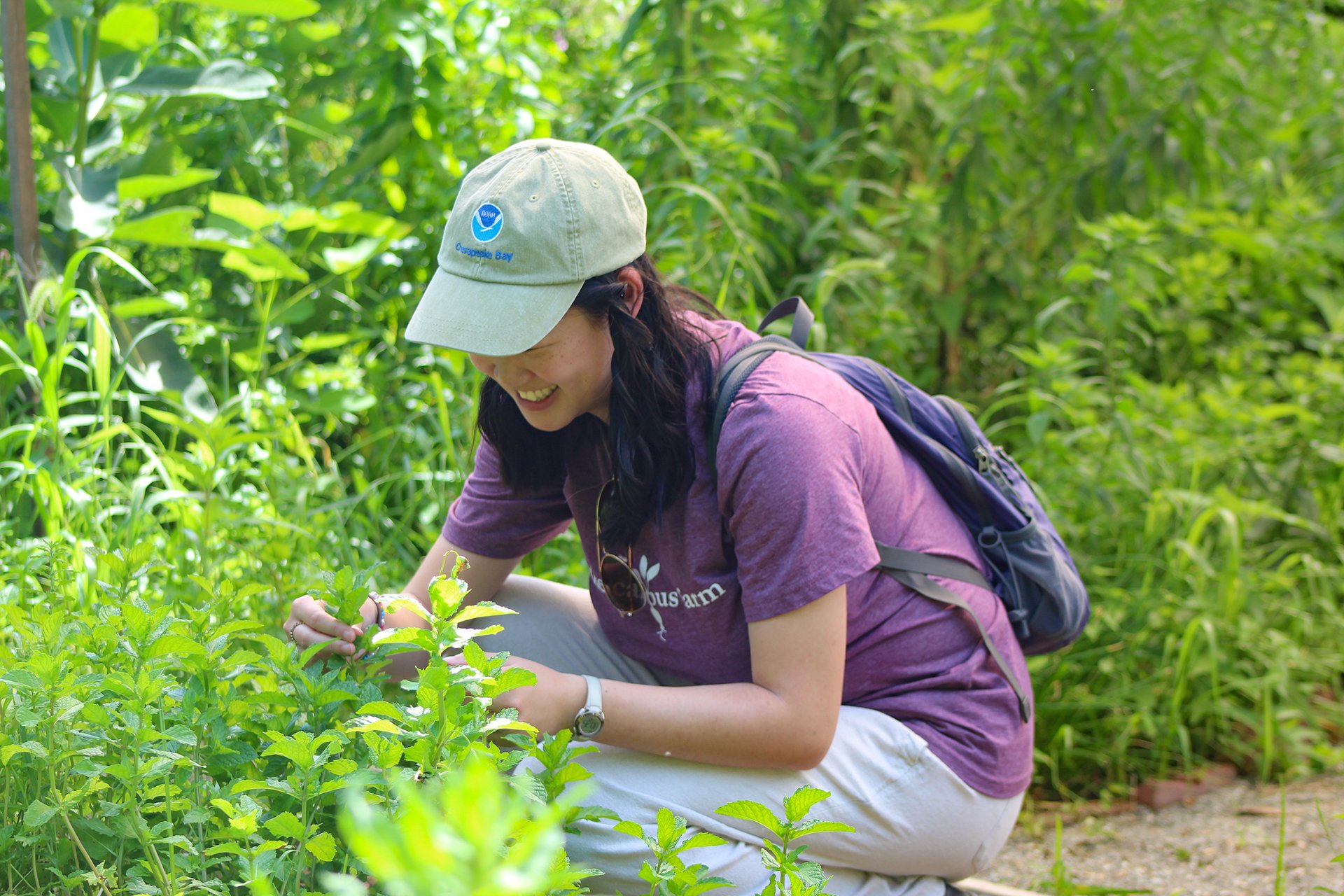Early Career Programs
Environmental Fellowship Program
The Environmental Fellowship Program (EFP) is a 14-month fellowship that expands early career opportunities for young professionals.
Throughout their fellowship, fellows gain hands-on experience within a Mass Audubon department, build professional connections in the environmental field, cultivate relationships with mentors within and beyond Mass Audubon, and acquire the tools to center Diversity, Equity, Inclusion, Justice, and Accessibility (DEIJA) in their work, as they embark upon their careers.
Hands-on Experience
Fellows are immersed in different departments at Mass Audubon based on their strengths, interests, and past experiences. Placements in areas like climate education, bird conservation, ecological restoration, land conservation, urban land conservation, and arts and education represent Mass Audubon’s multifaceted approach to protecting the nature of Massachusetts.
While the program is based out of the Diversity & Inclusion Division, each fellow is an integral part of the team within their specific department. They contribute to projects, pursue their professional interests, and advance Mass Audubon’s mission and goals.
The work of a fellow features on-the-job skill-building and the opportunity to lead on projects and gain valuable experience. By the end of their fellowships, fellows have the skills they need to hit the ground running in the environmental field and beyond.
Supportive Professional Community
The EFP creates a supportive professional community through its cohort model and mentorship opportunities. Each cohort of fellows spends 14 months together, building a community of peers and gaining an interdisciplinary perspective on Mass Audubon’s work across many areas.
The Early Career Program Manager facilitates regular cohort check-ins that include structured discussions and article readings centered around the intersection of conservation and justice. In these discussions, fellows can learn from and alongside each other as they engage with environmental justice ideas and topics.
Mentorship is also integral to the EFP. Fellows are assigned mentors from both within Mass Audubon and beyond through connections with community partners and environmental and conservation organizations. Fellows meet one-on-one with their mentors twice a month to discuss the fellow's future career plans and professional interests. Mentors act as a sounding board and additional resource beyond Mass Audubon, helping fellows determine both their long-term goals and what they hope to accomplish during their time at Mass Audubon.
Professional Development
As part of their professional development, fellows attend conferences in their areas of interest and go on trips to various Mass Audubon sanctuaries and partner organizations. These experiences provide diverse perspectives on the environmental field and Mass Audubon’s approach to addressing today's most pressing environmental issues.
Fellows also participate in a series of workshops where they learn to highlight their skills and experience in résumés, cover letters, and job interviews.
Each fellow plans and executes a professional project that combines their professional interests with DEIJA ideals and Mass Audubon’s top-level priorities. The project culminates in a symposium where fellows share their work and its lasting impact with the Mass Audubon community.
Professional Projects
Over the course of their fellowship, Environmental Fellows envision, design and enact a complete professional project that is uniquely aligned with Mass Audubon's mission of climate justice and conservation. Each year, the fellows present their work at an annual symposium celebrating all Early Career Program participants and their achievements.
Past Project Examples
- Cultivating Indigenous Allyship: Conservation Science Fellow Anne He ('24) conducted an internal audit of Mass Audubon's work with Indigenous communities and mapped potential future avenues for deeper engagement.
- Identifying Environmental Justice Work at Mass Audubon: Policy and Advocacy Fellow Isabela Chachapoyas Ortiz ('23) explored existing environmental justice work at Mass Audubon and created a resource for staff to better incorporate environmental justice into their work.
- Eco-Poetry and Climate Anxiety: Marketing and Communications Fellow Priya Dixit ('24) developed a creative writing workshop for young adults experiencing climate anxiety.
- People Accessing Landscapes (PAL): Land Conservation Fellow Nicolás Reyes ('25) created a web app that allows users to view 360 degree views of Boston Nature Center. Learn more about his project and the professional project process through this explanatory video.
Current EFP Fellows
Climate Education Fellow - Scarlett Gonzalez
Advocacy Campaign Fellow - Hannah McGrath
Ecological Restoration Fellow - Tiare Sierra Rivera
Land Conservation Fellow - Isabella Acosta-Jimenez
Nature in the City Fellow - Tami Gordon
Learn more about our current and past fellows
EFP Blog
Over the course of the year, each fellow writes two articles reflecting on the work they are doing at Mass Audubon, the progress of their professional projects and the experience they are having overall. The EFP Blog is a great way hear directly from the fellows, learn about the work they are doing and get a taste of what an environmental fellowship at Mass Audubon is like.
How to Apply
Applications to the 2026–2027 Environmental Fellows Program are now live. The deadline to submit an application is Friday, February 20.
Help the EFP Grow
Each year, EFP cohorts are selected from a pool of hundreds of qualified applicants; the need for equitable early career opportunities is clearly strong and growing. You can contribute to expanding early career opportunities for young people of all backgrounds who want to join the environmental field.
Stay Connected
Sign up for our Environmental Fellowship Program newsletter to get the latest on applications and deadlines.





